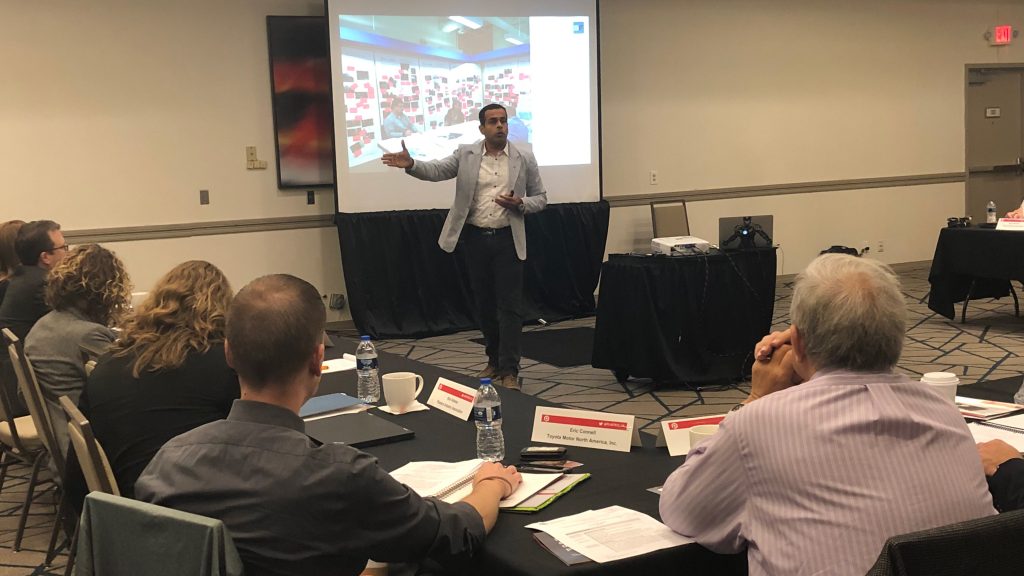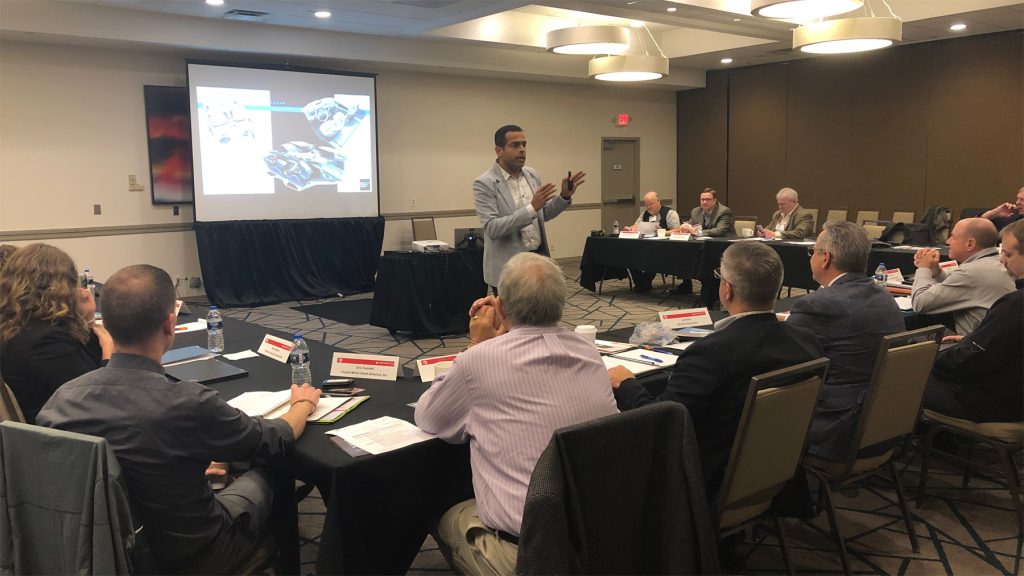
Last week, Jeevak was invited as a keynote speaker to the PLASTICS Transportation and Industrial Plastics Committee Meetings. The event was hosted by the Plastics Industry Association at the Embassy Suites in Livonia. Professionals from across disciplines addressed the state of the industry and pressing issues of sustainability and the effects of plastics products on the environment.
Amid the complex public discourse surrounding the role of plastics in marine pollution, and the many voices lobbying for or against the ban of single-use plastics, the public is desperately in need of trustworthy, factual information to guide how they think and feel about the plastics products they rely on daily. Unanswered questions and misguided beliefs regarding the use and disposal of plastics products leave a guilt-ridden fog around the public’s understanding of their relationship with plastics in general.
At the meeting on Thursday, Mia Quinn of PLASTICS updated us on how the Plastics Industry Association is responding to these issues with a unified voice through their “This Is Plastics” campaign. The campaign is a public policy and communications effort to educate the public on the indispensible role of plastics in our lives and on the sustainability of the industry as long as we employ proper disposal and recycling methods.
For more on the Plastics Industry Association, click here.
For more on This Is Plastics, click here.
After Mia’s inspiring presentation, Jeevak addressed another area of concern to the plastics community, namely, the products in which their materials are used. Jeevak spoke on “The Role of Sustainability in ‘Human Centric Design’”.

His presentation addressed the question of “what makes a product successful?”, and explored both the emotional and functional attributes that make a product that customers want to buy and feel great about buying. In the world of plastics, customers are able to feel they are making a good purchase only when they know that their products are sustainable. Jeevak compared and contrasted the diverse forces of end users, the market, the community, the materials, the technology, the culture that we are all affected by, and the aspirations of stakeholders in the creative supply chain on a final physical product. All of these forces must be harnessed and unified in a product that meets the emotional and functional needs of the user.
Jeevak opened the minds of those in attendance to the power of industrial design in the process of creating great products. Products that take into account factors like sustainability and the proper use and disposal of plastics. Products that not only solve the right problem for its customers, but solve the problem beautifully.